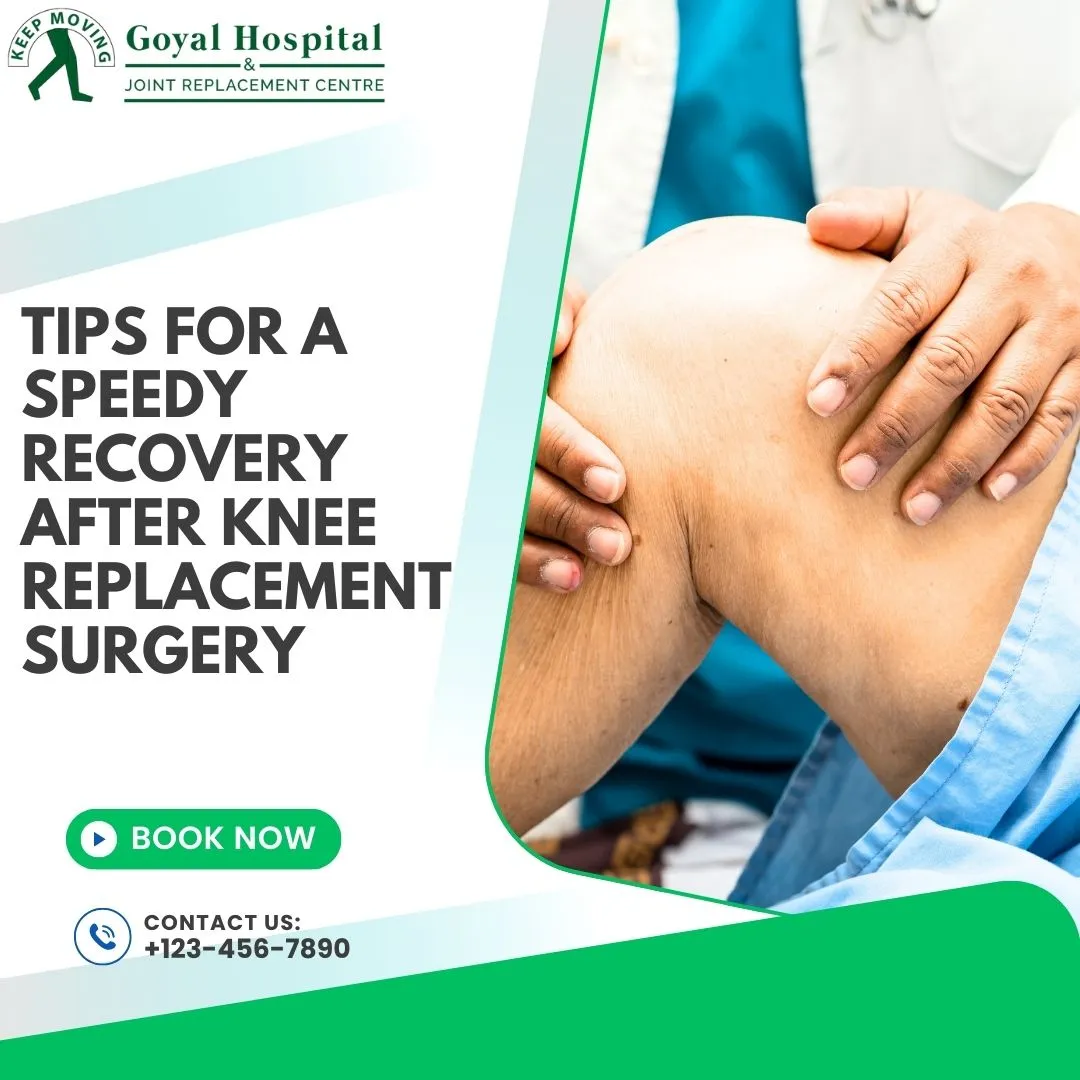
Undergoing knee replacement surgery can be a life-changing experience, offering relief from chronic pain and improving your overall quality of life. However, the journey doesn’t end in the operating room. A successful recovery is crucial to ensure the long-term success of the procedure. Whether you’ve chosen a renowned Knee Replacement Doctor in Jaipur, here are some tips to help you recover quickly and effectively.
1. Follow Your Doctor’s Instructions
The most important aspect of your recovery is adhering to the instructions provided by your surgeon and medical team. This includes taking prescribed medications, attending follow-up appointments, and following any specific guidelines regarding physical activity. Ignoring these instructions can lead to complications or a slower recovery.
2. Start Physical Therapy Early
Physical therapy is vital for regaining strength and mobility in your knee. Most patients begin physical therapy the day after surgery. The exercises will help improve blood flow, reduce swelling, and restore movement in the knee joint. Consistency is key—skipping sessions can delay your recovery and impact the overall outcome of the surgery.
3. Manage Pain Effectively
Pain management is crucial in the early stages of recovery. While some discomfort is expected, it’s important to keep it under control so you can engage in physical therapy and stay active. Your doctor may prescribe pain medications, but you can also use ice packs and elevate your leg to reduce swelling and pain.
4. Maintain a Healthy Diet
A balanced diet rich in nutrients can significantly impact your recovery process. Foods high in protein, vitamins, and minerals promote healing and strengthen your immune system. Staying hydrated is equally important, as it helps to flush out toxins from your body and reduces the risk of complications.
5. Keep Moving—But Don’t Overdo It
While it’s essential to stay active, it’s equally important not to overexert yourself. Gradually increase your activity level based on your doctor’s recommendations. Walking, using crutches or a walker initially, and avoiding high-impact activities will protect your new knee while allowing you to build strength and flexibility.
6. Watch for Signs of Complications
Be vigilant about any unusual symptoms during your recovery, such as excessive swelling, redness, or a high fever. These could indicate an infection or other complications. If you notice anything concerning, contact your surgeon or healthcare provider immediately to prevent further issues.
7. Practice Patience
Recovery from knee replacement surgery takes time. It’s important to remain patient and stay positive throughout the process. Set realistic goals for your recovery, and celebrate small milestones along the way. Remember that each person’s recovery timeline is different, so avoid comparing yourself to others.
8. Use Assistive Devices When Necessary
Assistive devices like crutches, walkers, or canes can provide additional support during your recovery. Don’t rush to abandon these aids before your body is ready. Using them correctly will help prevent falls and other injuries that could set back your recovery.
9. Stay Positive and Stay Motivated
Maintaining a positive attitude can significantly impact your recovery. Surround yourself with supportive friends and family, and stay focused on the end goal—returning to an active, pain-free life. Keeping a positive mindset can help you push through the more challenging aspects of recovery.
10. Choose the Right Medical Team
Your choice of surgeon and hospital plays a significant role in your recovery. If you’re considering a Knee Replacement Doctor in Jaipur, ensure that they have a strong track record of successful surgeries and patient satisfaction. Likewise, undergoing surgery at the best orthopedic hospital in Jaipur can provide you with access to top-notch facilities, experienced staff, and comprehensive post-operative care.
In conclusion, a speedy recovery after knee replacement surgery requires a combination of following medical advice, staying active, and maintaining a healthy lifestyle. By taking these steps, you can maximize the benefits of your surgery and get back to the activities you love sooner.




Comments